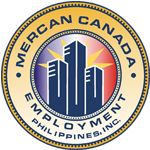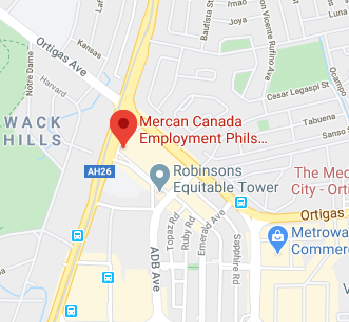New amendments to the Immigration and Refugee Protection Regulations (temporary foreign workers)
New amendments to the Immigration and Refugee Protection Regulations (temporary foreign workers)
Backgrounder
The new amendments to the Immigration and Refugee Protection Regulations:
- protect temporary foreign workers;
- ensure the integrity of the Temporary Foreign Worker Program (TFWP) and the International Mobility Program (IMP); and
- address some technical issues.
Amendments to protect temporary foreign workers
Providing information to temporary foreign workers about their rights in Canada
Temporary foreign workers are entitled to be informed about their rights in Canada. Therefore, the employer must provide the foreign worker with up-to-date information about their rights in Canada. The employer must provide this information on or before the first day of work, and in the worker’s language of choice (either English or French, the two official languages of Canada). The employer must also make this information available to the temporary foreign worker throughout their period of employment.
Information on the rights of temporary foreign workers can be found on Canada.ca:
- Temporary foreign workers: Your rights are protected: This document explains the rights of workers hired under the TFWP. It is also available in six other languages, including Spanish.
- International Mobility Program: Get to know your rights while working in Canada: This document explains the rights of workers hired under the IMP.
Providing an employment agreement to the temporary foreign worker
This amendment ensures that Immigration, Refugees and Citizenship Canada, Employment and Social Development Canada, and the temporary foreign worker all have the same information regarding the conditions of employment.
When an employer who is hiring under the TFWP submits their request for a Labour Market Impact Assessment (LMIA), they must now commit to having an employment agreement with the temporary foreign worker. The employer must provide the temporary foreign worker with a signed copy of the employment agreement on or before the first day of work. A similar condition applies to employers who are hiring under the IMP. When they submit an offer of employment in the Employer Portal, they must attest that they have already provided the temporary foreign worker with an employment agreement.
In both programs, the employment agreement must match the offer of employment. The employment agreement must provide for employment in the same occupation, with the same wages and with the same working conditions as those set out in the offer of employment. The employment agreement must be drafted in the temporary foreign worker’s choice of English or French, and it must be signed by both the employer and the temporary foreign worker.
This amendment is expected to improve temporary foreign workers’ understanding of their wages and the work they will be performing.
Amending the definition of “abuse†to include “reprisal†against temporary foreign workers
Employers were previously obligated to make reasonable efforts to provide temporary foreign workers with a workplace free of abuse. Under the new amendments, the definition of “abuse†has been updated to include a direct reference to “reprisal.â€
Prohibit employers from charging or recovering fees
This amendment addresses the principle that temporary foreign workers should not be paying for their recruitment. This should mitigate concerns about their financial exploitation.
This amendment prohibits employers from charging or recovering the following fees:
- Â fees for the provision of services in relation to an LMIA;
- employer compliance fees; and
- fees related to recruitment.
Employers must also ensure that any recruiters acting on their behalf do not charge or recover these fees.
Workers will continue to pay the fees related to temporary visas, temporary resident permits and work permits. Any fees that are related to the recruitment of the foreign worker and that are authorized under an international agreement between Canada and a country participating in the Seasonal Agricultural Worker Program are also excluded from this prohibition.
These amendments apply to the period before employment starts, as well as during the employment period.
First, when employers who are hiring under the TFWP submit their request for an LMIA, they must confirm that they have not charged or recovered fees from a foreign worker in relation to the LMIA or to recruitment, and that they will not do so. They must also confirm that any third-party recruiter acting on their behalf does not charge or recover such fees. Employers who are hiring under the IMP must attest when submitting an offer of employment in the Employer Portal that neither they nor any third party they have used have charged or recovered any fees related to employer compliance fees or recruitment fees.
Second, for both programs, a new condition prohibits employers, during the period of employment, from charging or recovering from temporary foreign workers fees paid by the employer for their recruitment. Employers must also ensure that any recruiter acting on their behalf does not directly or indirectly charge or recover these fees from the worker.
If an employer (or a recruiter acting on their behalf) charges or recovers prohibited fees, either before or during the period of employment, they will be able to justify this if:
- they made all reasonable efforts to comply with the conditions; and
- they subsequently provided full compensation to the temporary foreign worker for the fees that were incorrectly charged or recovered.
Protecting the health and safety of temporary foreign workers
Access to health care services
All employers under both the TFWP and the IMP are now required to make reasonable efforts to provide access to health care services when a temporary foreign worker is injured or becomes ill at the workplace. For example, reasonable efforts could include:
- ensuring that there is a phone available to the temporary foreign workers to call emergency services; or
- organizing, but not paying for, transportation to a hospital, clinic or doctor.
Private health insurance for emergency medical care
All TFWP employers must obtain and pay for private health insurance that covers emergency medical care during the period for which the temporary foreign worker is not covered by their provincial or territorial health insurance system. This condition applies to all TFWP employers, except in the case of employers who employ a foreign worker under an agreement reached between Canada and another country concerning seasonal agricultural workers, where the agreement includes health insurance.
Amendments to protect the integrity of the programs
Requiring documents from third parties
To help support employer inspections, Employment and Social Development Canada and Immigration, Refugees and Citizenship Canada now have the authority to require, without the consent of the employer or worker, that any third party provide any document in their possession that relates to the employer’s compliance with regulatory conditions. Examples of third parties include banks and payroll companies.
Employment and Social Development Canada and Immigration, Refugees and Citizenship Canada will continue to adhere to the Privacy Act and to the privacy requirements of their respective legislation. They will collect only the information that is necessary for the intended authorized purpose. In this case, the intended authorized purpose is to support the inspection process and verify employer compliance, particularly in instances where the employer is uncooperative.
Suspend the processing of a request for an LMIA
Employment and Social Development Canada now has the authority to suspend the processing of an LMIA request if there is reason to suspect that the employer is non-compliant with one or more of the following conditions, and that the health or safety of the foreign worker would be put at risk if a work permit were issued:
- The employer must be actively engaged in the business in respect of which the offer of employment was made, unless the offer was made for employment as a live-in caregiver.
- The employer must provide the foreign worker with working conditions that are substantially the same as (and not less favourable than) those set out in that offer.
- The employer must make reasonable efforts to provide a workplace that is free of abuse.
- The employer must comply with COVID-19-related conditions.
The suspension would remain in effect until there is no longer a reason to suspect a serious risk to the health or safety of the worker. In this case, the suspension would be lifted and the processing of the new LMIA would continue. If there were still a reason to suspect non-compliance with program conditions, the inspection process would continue.
New assessment requirements for employers applying for an LMIA
This amendment increases Employment and Social Development Canada’s capacity to identify potential wrongdoing when assessing an employer’s request for an LMIA. This applies to employers who have not employed a foreign worker under the TFWP in the past six years.
Employment and Social Development Canada is now required to assess, during the period extending from two years before the day on which a request for an LMIA is received and up to the day that the LMIA is provided, whether the employer:
- made reasonable efforts to provide a workplace that is free of abuse; and
- was not an affiliate of an employer who is ineligible for the program or has an unpaid administrative monetary penalty.
Wage and labour dispute factors are now stand-alone LMIA requirements
Under the previous regulations, Employment and Social Development Canada assessed seven different factors to determine whether the employment of the foreign worker would be likely to have a neutral or positive effect on the labour market in Canada. These seven factors were given equal consideration as part of an overall assessment. Failure to meet one or more of these seven factors would not have resulted in an automatic refusal.
Now, upon receipt of an LMIA request, Employment and Social Development Canada will consider two of these factors independently:
- whether the wages set out in the offer of employment are consistent with the prevailing wage rate for the occupation; and
- whether the employment of the foreign worker is likely to adversely affect the settlement of any labour dispute or the employment of any person involved in the dispute.
These two factors will be assessed on a pass or fail basis, while the remaining factors will continue to be taken as part of the overall assessment.
Regardless of the assessment of the other five factors, these two factors are requirements. They must be satisfied in order for an employer to receive a positive LMIA.
Collecting information regarding compliance with IMP conditions to ensure program integrity
This amendment confirms Employment and Social Development Canada’s authority to collect personal information on employers and temporary foreign workers in order to verify an employer’s compliance with the conditions of the IMP. This could include information received through the TFWP Confidential Tip Line or the online reporting tool. It also includes information that is reported in the media. Any relevant information would be shared with inspection officials from Immigration, Refugees and Citizenship Canada.
Alignment and Technical Amendments
Compliance with provincial or territorial laws that regulate the employment or recruitment of employees
Some provinces have requirements for employers to register with the province before recruiting and hiring temporary foreign workers. In addition, some jurisdictions also require mandatory licensing of recruiters.
This new amendment clarifies that employers must comply with all provincial and territorial employment and recruitment laws, including those laws that specifically relate to temporary foreign workers, in the province or territory where the temporary foreign worker will work.
Repealing the sections in the Immigration and Refugee Protection Regulations regarding employer compliance reviews
Employment and Social Development Canada and Immigration, Refugees and Citizenship Canada have not used employer compliance review authorities since 2019. This is because the inspection authorities are more effective for detecting employer non-compliance. This amendment officially repeals the employer compliance review provisions and brings the Immigration and Refugee Protection Regulations in line with current practices.


